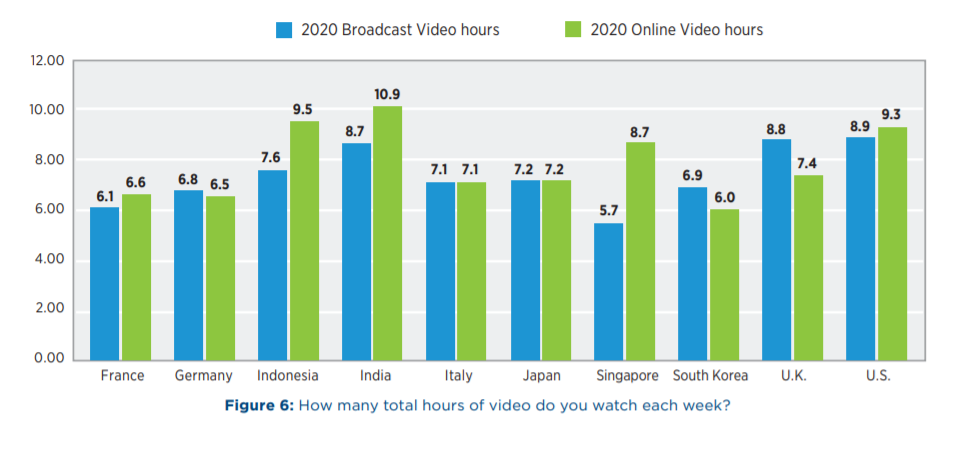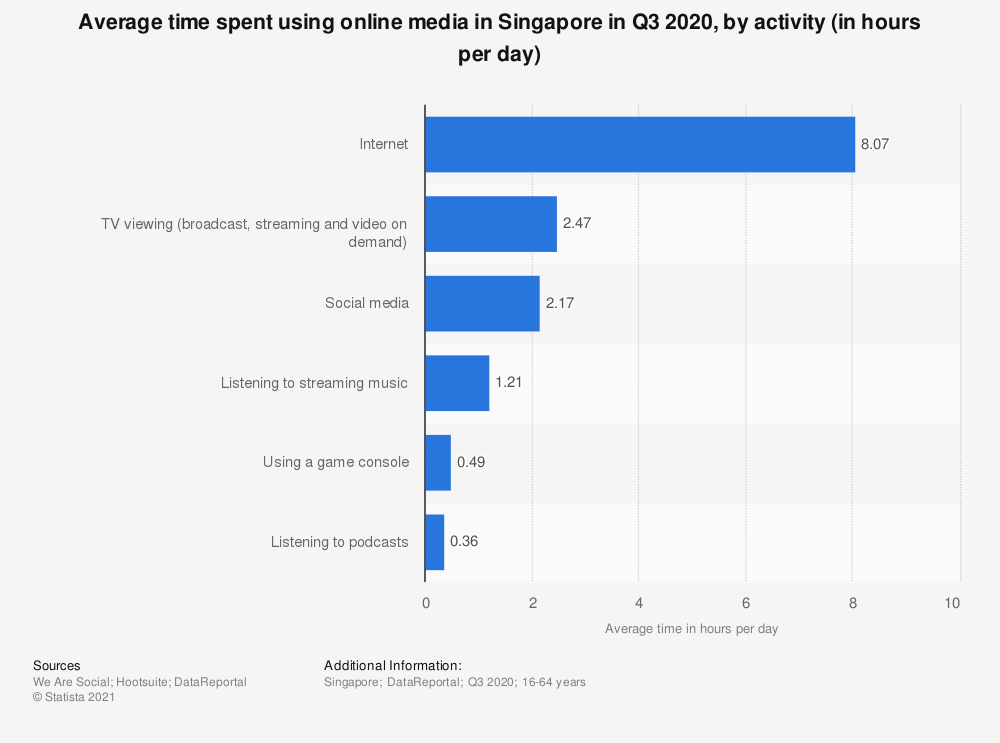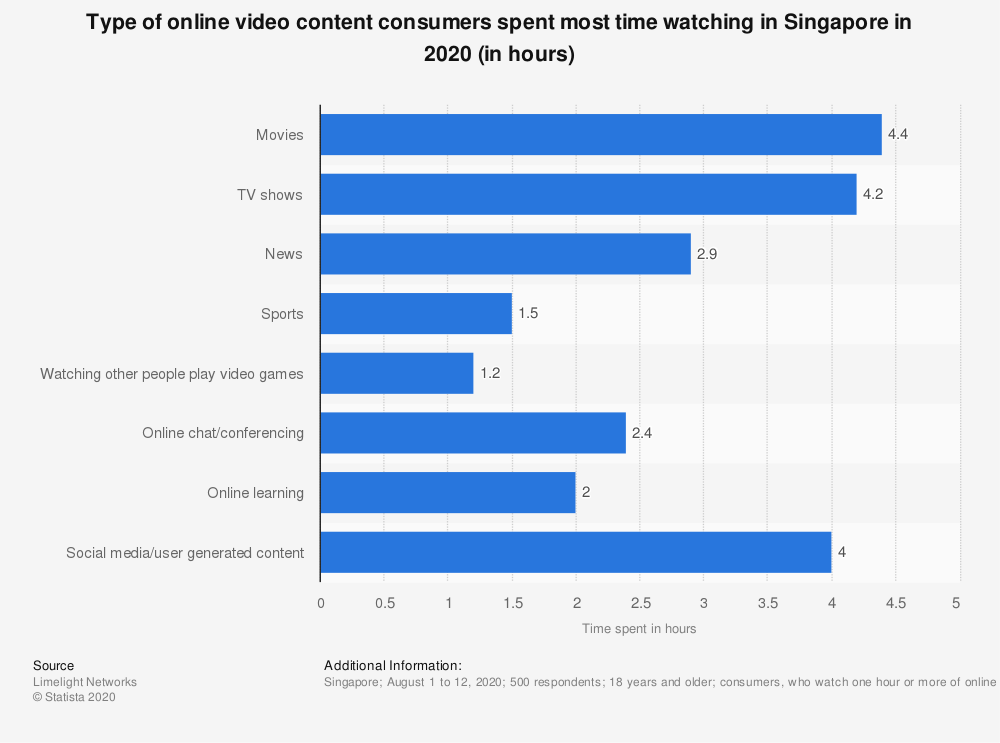Edwin Yeo
General Manager of SPRG Singapore
Can agencies produce the next Game of Thrones?
- Online entertainment and information consumption are pivotal during Covid-19 lockdowns
- Globally, online video consumption equalled or even exceeded broadcast videos in 2020 particularly in Singapore and India
- More brands are creating content in-house, or working with specific content-creation platforms such as media companies and YouTube content creators
- Short-form video storytelling, traditionally an agency strength, is substantially more professional than a YouTube video, and much more quickly produced than a TV drama
- Agencies should not need a client brief to monetise their creativity
The answer to that clickbait headline is, probably not.
Not because agencies do not have the talent pools to actually create content that would attract legions of die-hard followers - after all, creativity is a core tenet of any agency - but because most agencies still operate on a service business model, and the number of people required to create a show like Game of Thrones would be too much of a drain on their core business model.
However, while it is unlikely that agencies will ever challenge the likes of Disney+ and Netflix in terms of content production, the pivot towards online entertainment and information consumption, particularly evident during Covid-19 lockdowns, has created opportunities for agencies to flex their creative muscles beyond client campaigns.
Globally, consumption of online videos has equalled or even exceeded broadcast videos in 2020. This is especially stark in countries such as Singapore and India.

Source: The State of Online Video 2020, Limelight Networks.
This in itself is not surprising, seeing that Internet usage now far outstrips any other form of entertainment in today’s world.

While viewers average between six to 10 hours per week in online video consumption, depending on age and location, there’s a rise in demand for shorter video entertainment that can be consumed on the go. While viewers still enjoy long-form dramas such as those on video-on-demand services, shorter user-generated types of videos are equally popular.

It is in this space that agencies excel. Short-form video storytelling, usually created as commercials for brands, has traditionally been the strong suit of agencies. Much more professionally shot than your typical YouTube video, but a lot quicker to produce than your average Korean drama, we’ve often seen agencies tell wonderfully engaging stories over the years. Think Thai TV commercials or that famous short documentary Unlikely Best Friends by Kleenex, which garnered over 1.7 billion online views.
It’s not that we didn’t know how to tell great stories, but we usually did it for a brand as a creative service that we provide. But with more and more brands bringing content creation in-house, or working with specific platform owners such as media companies and YouTube content creators, is it time for agencies to think about how to monetise their creativity without the need of a brief from clients?
There’s no reason why agencies can’t do it. YouTubers have been monetising their creativity for more than a decade, and many have found a way to earn revenue via YouTube partnerships, branded content and, more recently, being appointed/enlisted by media companies to produce content for their online platforms.
Additionally, as demand for such short-form content grows, there is also a possibility that well-produced short video content can find buyers at events such as MIPCOM*.
To do that, agencies need to be able to own a stable of well-produced video content and position themselves as a notch above YouTubers, even if they are still not quite in the same space as established production houses.
This is not exclusive to just online videos. Public Relations agencies can also get into the game through the development of owned media platforms, which can eventually earn revenue from programmatic advertising and sponsored content. One of our partners in Indonesia, using their intimate knowledge of the palm oil industry, created a thought leadership platform that has been strongly supported by major/numerous palm oil players, and most recently was featured in a BBC documentary about palm oil and deforestation.
Similarly, at SPRG, some of our offices have also developed wholly-owned media platforms in the areas of sustainability, healthcare and sports.
This pivot is not easy, of course, especially for agencies operating on a service model and calculating profitability solely on billable hours. They are currently not set up to regularly invest in production work which can run up a lot of non-billable hours, nor have they developed sales structures that see them actively monetising their intellectual properties.
However, agencies do need to adapt in order to meet the challenge of marketing dollars increasingly shifting online, and digital marketing channels are making it harder and harder to advertise, with everything from ad blockers and cookieless worlds to social media platforms’ constant adjustments of their targeting algorithms.
Coupled with the commoditisation of creativity, it is perhaps high time for agencies to think about whether their creative talent can be repurposed for another revenue model.
Maybe a Game of Thrones Lite?
*MIPCOM: The world’s largest entertainment content market which is held every October


